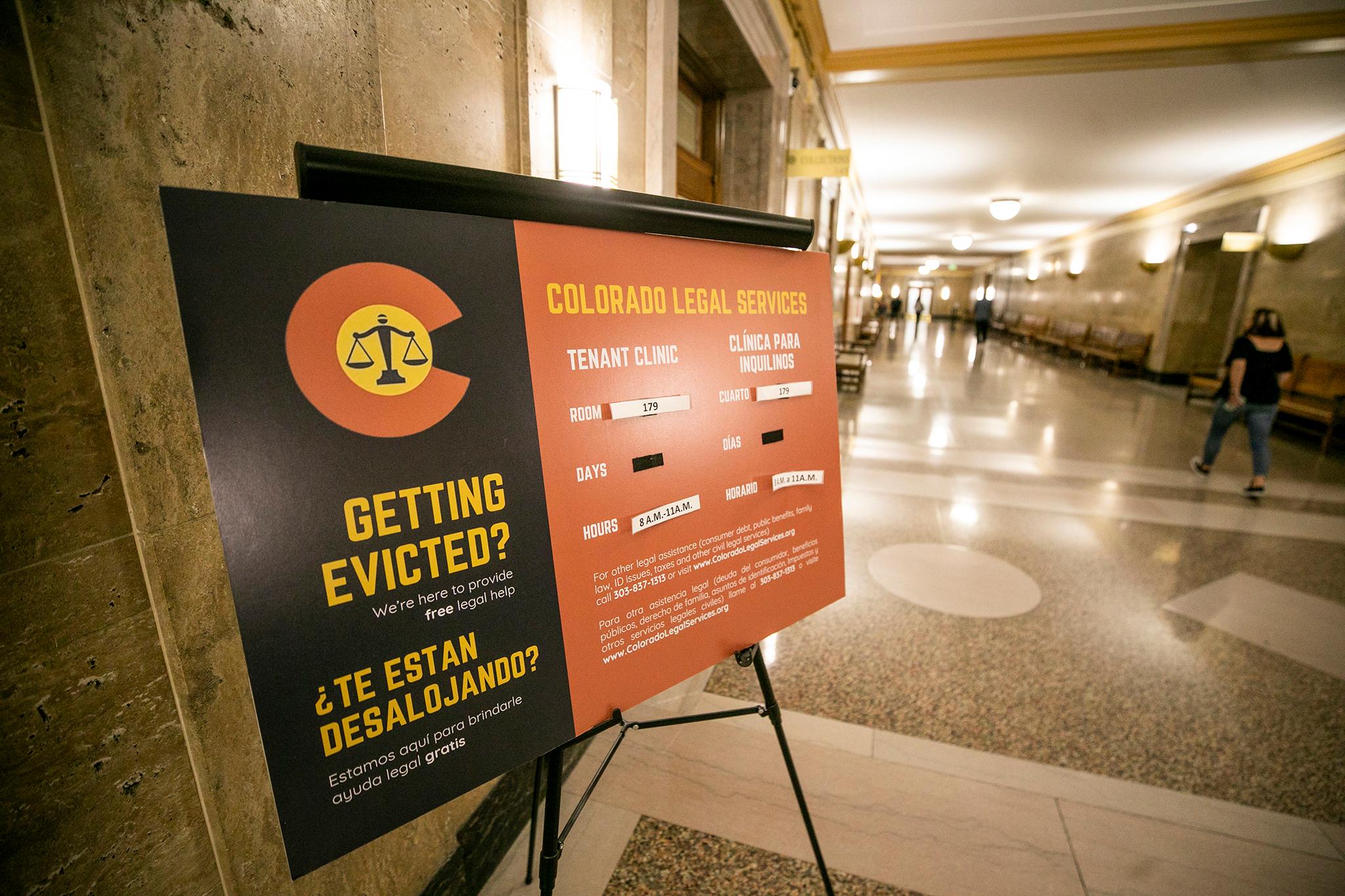Updated at 9:36 a.m. on Aug. 12, 2023.
$55 million.
That's how much some experts think it would cost to halt evictions on an annual basis, according to research from the Community Economic Defense Project.
And it's what organizers from Coloradans for the Common Good are pushing City Council to request from Mayor Mike Johnston, who is in the process of crafting his first budget.
"While we certainly applaud Mayor Johnston's goal of getting 1,000 people off the streets, that's great, but what we see is that once people are evicted, they're added to the homeless. And so it's another way of getting homeless off the street, but in more of a preventative way, rather than after they're already homeless," said Coloradans for the Common Good co-chair Marilyn Winokur.
Money for rental assistance is just one of a number of requests City Councilmembers are making to Johnston as he crafts the budget. While City Council sent a list of budget priorities to former Mayor Michael Hancock in May, members met again this week to consider additional requests from Denver's new Councilmembers.
City Council has until Aug. 22 to deliver its requests of Johnston's budget.
In addition to potential money for rental assistance, Councilmembers proposed requests for other anti-poverty measures like medical debt relief and universal basic income.
Other cities have forgiven medical debt as a way to fight poverty. And while Denver is currently running a basic income program, its funding is set to end this fall.
"I'm really figuring out, what are the opportunities in the budget to eradicate poverty?" said Councilmember Shontel Lewis, who brought a number of new requests related to housing, education and poverty relief. "I think there are a lot of opportunities in the budget process to be able to do that."
Councilmember Sarah Parady talked with advocates from Coloradans for the Common Good and partnered with Lewis on the request for medical debt relief.
"It would really augment what the mayor is trying to do, in terms of getting people re-sheltered," she said. "If we're going to try to really get people back on their feet, wiping out medical debt is relatively inexpensive and a really powerful component of that."
Interested readers can find a full list of these and other budget proposals offered by City Council here.
With evictions on the rise, community activists say the need for rental assistance is urgent.
Denver's Department of Housing Stability launched an emergency rental assistance program in 2021 to help people struggling to make rent during the pandemic. A mix of state and city programs, much of which was funded through federal pandemic emergency funds, spent over $120 million helping more than 12,700 Denverites. Eviction filings dropped.
But that money dried up after the federal government wound down emergency pandemic programs. Residents have access to the city's Temporary Rent and Utility Assistance program, but Community Economic Defense Project CEO Zach Neumann that it is not nearly enough.
"What we're seeing is historic evictions in Colorado," he said.
Since the emergency program ended, evictions have gone back up. In May of 2019, Denver saw 784 eviction cases. In May of 2023, that figure hit 1,216. And Neumann said that figure undercounts the number of households losing their housing, since many people leave before their landlords formally evict them, to avoid having the eviction on their record.
"We're just in an incredibly challenging moment as a city and as a state, and housing prices are totally out of step with wages," Neumann said. "It is really, really tough to live in Denver, Colorado. Policymakers need to do something. We're hopeful that they'll take action on this, but there are a tremendous number of competing priorities here."
Council might make the request to Johnston, but it's the Mayor's office that crafts the budget.
Winokur sees the rental assistance money as a potential opportunity for City Council to have a heavier hand in the budget more broadly. Under Denver's strong-mayor system, the mayor drafts the budget, while Councilmembers send priorities and city- and district-wide requests.
Councilmembers can bring amendments, but they risk a veto from the mayor. Council can override a veto with nine votes, but that is rare -- in 2022, Council passed just one amendment, overriding former Mayor Michael Hancock's veto over added crosswalks in each district.
But City Council ultimately votes on the budget, and Winokur said members should use that power and take advantage of amendments -- something she would want to see if more rental assistance is not included.
"We just believe strongly that the Council should have a much more important role in the budget process, because after all, they're representatives of all the different districts in Denver, not just the overall Denver mayor," Winokur said.
Johnston's spokesperson Jordan Fuja said as the mayor prepares the city's budget proposal for the council's consideration, he values their input and that of the community.
"He looks forward to reviewing these requests to help craft a budget that prioritizes results on preventing homelessness and supporting people experiencing homelessness today and in the future," Fuja said.
He will release his first budget in September and budget hearings will be held Sept. 18-25.
You can watch the full discussion by City Council here.
This story has been updated with a comment from Mayor Mike Johnston's spokesperson.












